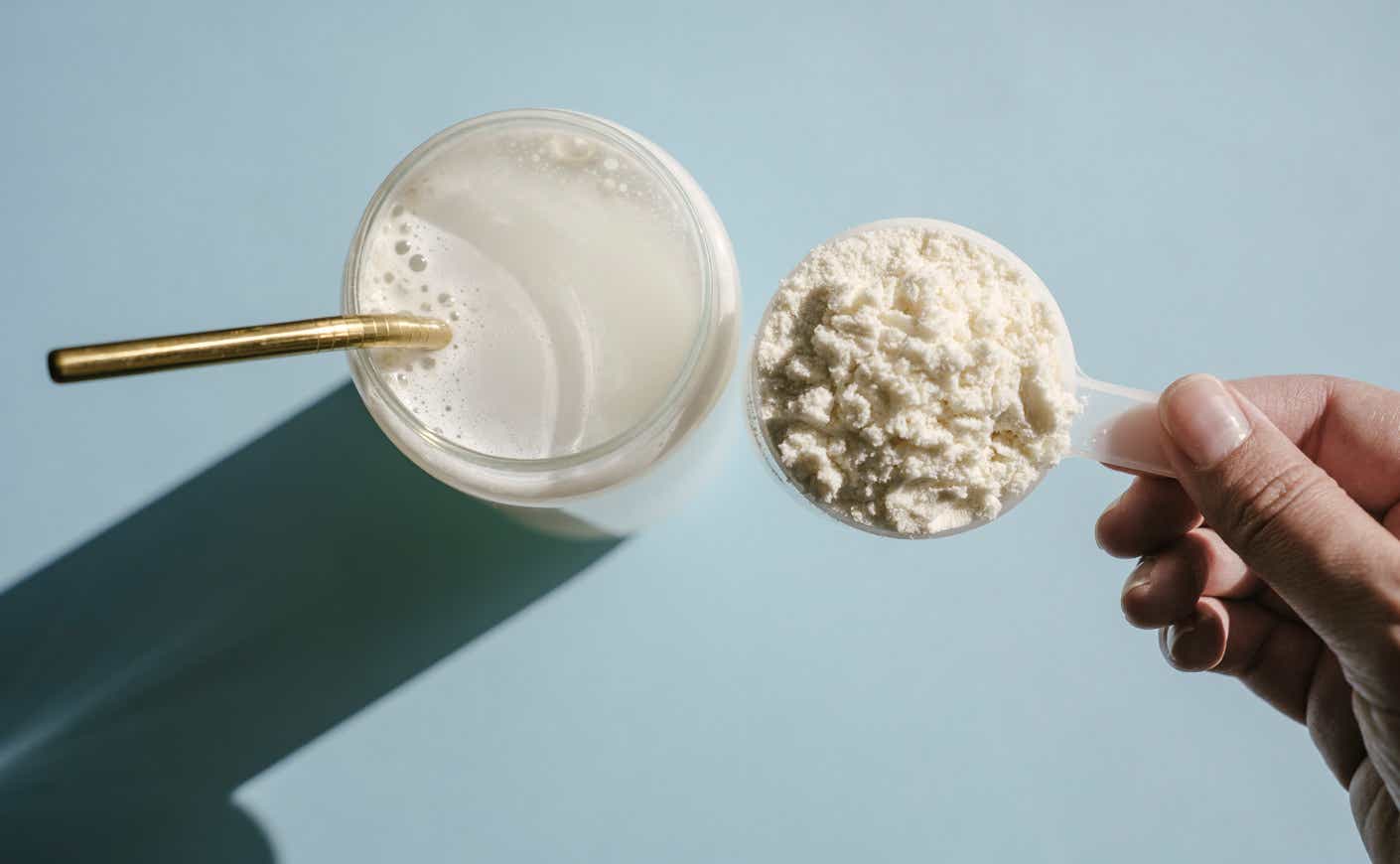If you’ve been on Instagram lately, you’ve probably heard that you’re not eating nearly enough protein. Many extremely ripped fitness influencers are evangelizing about how our diets are grossly deficient of this vital nutrient, and some have recommended doubling or even tripling your intake.
But before you run for that whey, you’ll want to read this first. We spoke to Federica Amati, Ph.D., the head nutritionist at the personalized nutrition company ZOE, who explains that, contrary to what social media’s been telling you, almost all of us here in the U.S. are getting more than enough protein — and there’s another nutrient we should be filling our plates with instead.
Dr. Amati dishes on how much protein we really need, her hot take on where the myth of the great-protein shortfall comes from, and how menopause changes the equation.
How much protein should we be eating each day? Is there such a thing as too much protein?
Dr. Amati: The dietary standard for protein intake, the one used by the World Health Organization, is 0.8 grams per kilogram of body weight, or 0.36 grams per pound, each day. That number is really well researched and understood. The average American consumes far more than that, about 1.4 grams per kilogram of body weight (0.64 grams per pound). And these are only people who aren’t supplementing with protein shakes or powders, so really there’s no need to worry about hitting that threshold, when most people are getting almost twice as much as what’s recommended.
The only time we see protein deficiency in the U.S. is when people under-eat. It’s reported in people with eating disorders and in those recovering from major trauma like severe burns or cancer. The other group who should be getting more protein are body builders and elite athletes, who are putting their muscles through a cycle of break and repair.
Where do you think this idea that we should be eating more protein comes from?
There’s a lot of confusion about the science and how experts have arrived at this 0.8 grams per kilogram number. Then there's clever marketing. Whey is the best example of this — it’s simply a byproduct of the dairy industry that the food industry has marketed as a supplement to build your muscles and is able to sell it at a premium. It’s a very cheap additive and it gets pumped into almost anything nowadays, like high-protein cookies and breakfast cereals, and it allows companies to make these health claims that consumers buy into.
So are there any benefits to taking protein supplements?
I find whey to be beneficial for not much, if I’m completely honest. If anything, I find that a lot of people have quite bad gastric side effects from it, like nausea or diarrhea.
Creatine, however, is intriguing because it seems to really give you more energy during your workouts, so if you’re doing strength training that can be really helpful. And there’s been some really interesting research that suggests it has a cognitive benefit. So five grams of creatine — especially for people who are working out or are lifting heavy weights — could make a difference.
The one supplement that none of us need to be taking is bovine colostrum, which is the first form of breastmilk that’s released by the mammary glands after giving birth. No one needs that except for baby cows.
There’s been some conversation about how women in perimenopause or menopause should be eating more protein. Is that the case?
As we age, we become less efficient at absorbing protein and making new proteins. That’s why women in menopause are at an increased risk of metabolic dysfunction. Some research suggests that women in their 60s and 70s should be getting about 1 gram per kilogram of body weight, as opposed to 0.8 grams. But, again, most of us are already consuming that much — so the focus shouldn't really be on protein, but on ensuring that you’re getting high-quality foods with protein, those that are high in fiber and high in polyphenols to maintain muscle mass and bone mineral density.
Are there other nutrients we're actually deficient in?
Something like 95 percent of us are deficient in fiber. It’s a big gaping hole in our diets. The other big one is iron. Between 40 to 50 percent of women who are menstruating don’t have ideal iron levels. So it’s really important to get those iron-rich foods, especially if you have heavier periods.
This interview has been edited and condensed for clarity.









